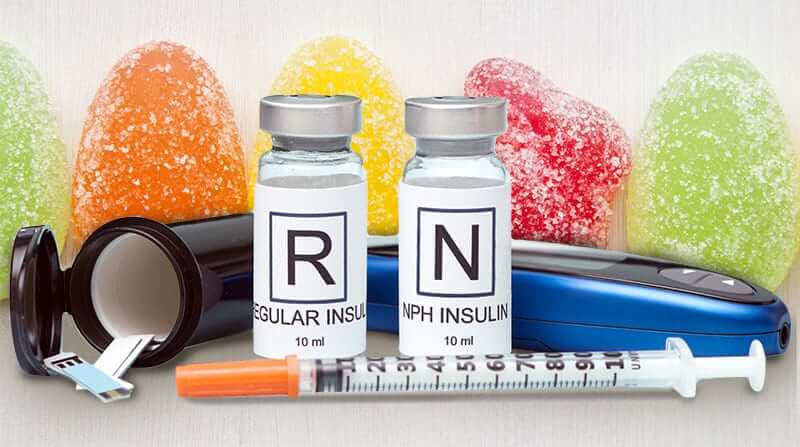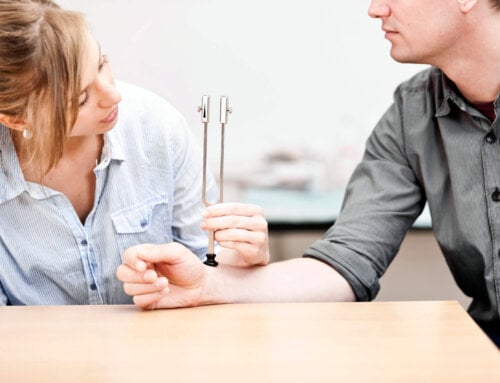Overall diabetes control is based on the A1C which is an average of approximately 3 months worth of blood sugars that includes the extreme highs and lows. Let’s review what can happen to your body with highs and lows and how to treat them.
- The organs which are mostly affected by elevated sugars are supplied by tiny vessels: the eyes (retinopathy), the kidneys (nephropathy) and the nerves (neuropathy). New research confirms that the brain can also be affected by elevated blood sugars. Fuzziness of the brain can be a symptom of poor blood sugar control. Columbia University Medical Center studies suggest that high sugars cause less blood flow in the brain which can reduce oxygen and nutrients to the brain cells. A published study in the Diabetes Care Journal (2009) reported on over 3000 participants with type 2 diabetes that the higher the A1C the lower the cognitive function. A study in The Journal of Clinical Investigation (March, 2012) done by the University of Pennsylvania Medical School, showed a significant association between insulin resistance, elevated blood sugars and an increased amount of diagnosed Alzheimer’s disease. A lack of insulin and elevated sugars impact brain functions that include learning, remembering, judging and problem solving. People with uncontrolled diabetes can develop Alzheimer’s two times as often as those who are controlled.
What can you do to help prevent the highs?- Take medications as prescribed. If you are not sure when or how to take them, check with your pharmacist or MD. Set a timer if you need to; place them in an obvious location so skipping your medications does not occur. Carry a pill box or a case for your insulin. Do not run short on medication-refill when you can.
- Physical activity needs to become part of your daily life. Muscle mass helps your body utilize insulin and blood sugar. Anything helps including gentle walking, chair exercises or pool activity.
- Watch portions sizes, space out meals, do not skip meals or snacks and load up later. Eat on a schedule. Think about healthful food choices including low glycemic foods.
- Drink plenty of water and stay hydrated and incorporate stress reduction.
- The other extreme is hypoglycemia or low blood sugar. Any number under 70 is considered hypoglycemia although you may feel symptoms at higher numbers especially if you have had uncontrolled diabetes for awhile. Low blood sugar also impacts brain function. The Journal of the American Medical Association found that increased hypoglycemia causes Alzheimer’s disease as well. The brain needs glucose to operate and depends on glucose for mental concentration. Brain cell energy requirements are two times more than any other cells. The brain does not produce its’ own sugar source and it depends on blood sugar; low blood sugar decreases cognitive function. Low blood sugar symptoms can include shaking, sweating, hunger, headaches, confusion or weakness; try to test when you experience these to get an idea of your actual value. Causes of low sugar can occur if you are skipping meals or snacks, exercising too much, drinking alcohol on an empty stomach, taking too much insulin or sulfonylurea’s, injecting insulin in an area you are using for exercise, injecting into a muscle instead of fat tissue, or taking a hot bath / shower following an insulin injection. If you are experiencing hypoglycemia more than one time a week you should contact your health care provider. Some people get hypoglycemic unawareness-no symptoms, which require even more diligence.
What can you do to help prevent the lows?- Eat on time and never skip meals. Include small amounts of carbohydrates to feed the body and the brain.
- Learn the rule of 15-15 grams of a carbohydrate, wait 15 minutes for it to work, check blood sugar in 15 minutes and repeat up to 3 times. Follow the 15 grams with a protein and carbohydrate like a half of sandwich. My favorite sources of 15 gram carbohydrates are glucose tablets and the best ones to take are Diachieve glucose tablets. The reasons are simple. When your sugar is low the glucose tablets are portable and easy to store in your gym bag, car, night stand, purse or pocket; they are cheap enough to put all around for those unexpected lows. They have a fixed amount of carbohydrate with a fixed amount of calories. All other glucose tablets require 4 tablets to be chewed to equal 15 grams where as Diachieve requires only 3 tablets since they are 5 grams a piece. They taste fairly good as opposed to the dry, chalky kind. Usually when you are low you grab for anything and eat large portions just to relieve the symptoms, which results in extra calories and weight; the blood sugars swing from too low to sky high when you over treat. I had a patient that treated with hard candies, cracked a tooth and ended up with a crown. Chocolate candy has too much fat and takes too long to get into the system as does fruit or regular food. Keep it easy and get fast results with Diachieve glucose tablets.
Keeping blood sugars in target range is good for all your organs including your brain! You will ultimately feel better too!
NOTE: Consult your Doctor first to make sure my recommendations fit your special health needs.













Leave A Comment